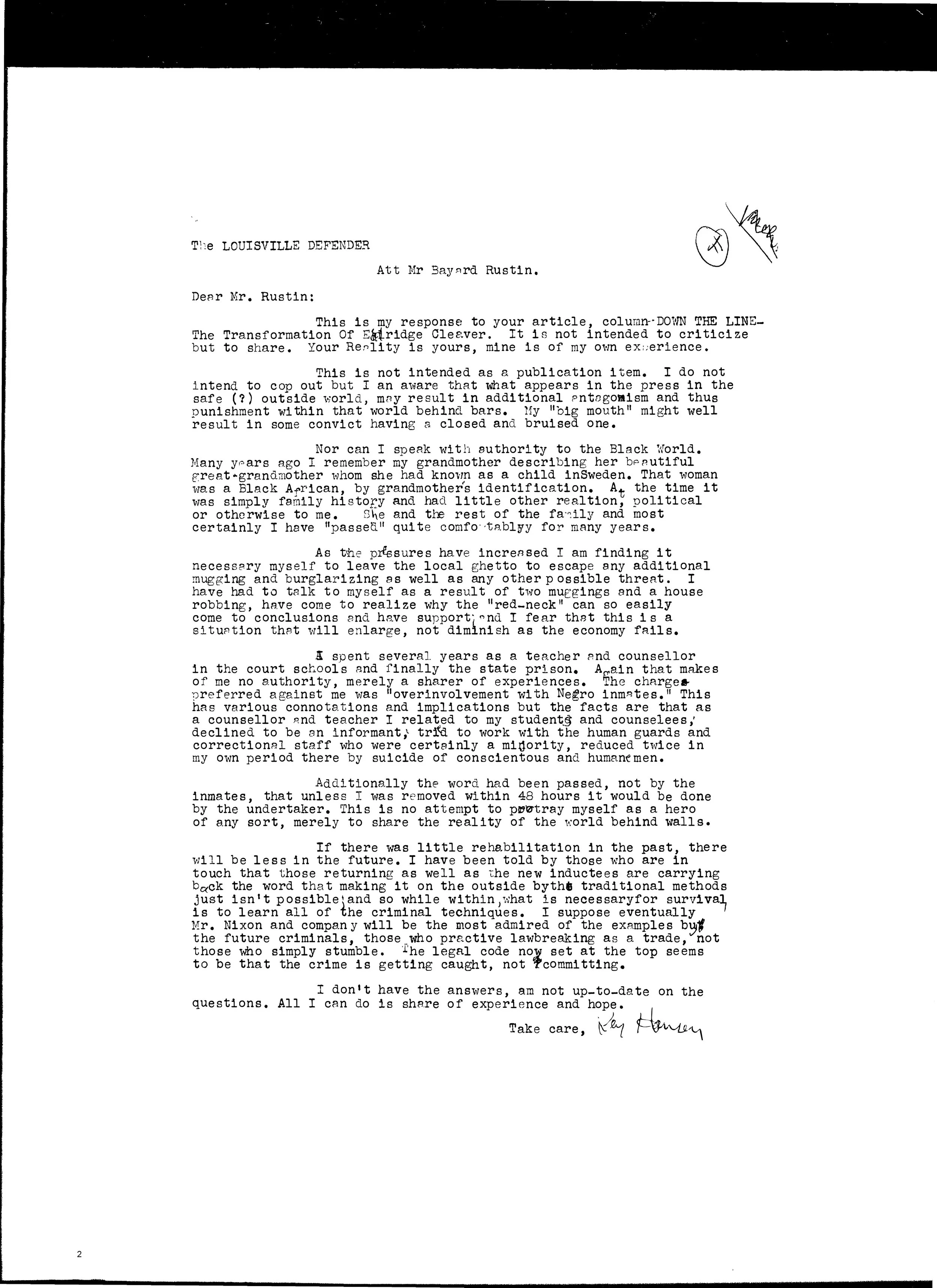Rustin and prison counselor Key Hansen expose how white liberals and the media distorted Eldridge Cleaver into a militant caricature, obscuring his real threat to the state: his capacity to inspire organized resistance within a brutal prison system.
By 1975, the revolutionary movement had fallen apart. The Black Panther Party was collapsing. People who had once believed in armed revolution were rethinking everything. Rustin had always believed in working within the system. He used Cleaver's story to argue that real change came through democratic participation, not romantic fantasies about armed rebellion.
Hansen wrote from inside the prison system after Attica. In 1971, state troopers murdered 29 prisoners and 10 hostages. The government response was not to reform prisons but to make them worse. Prisons became more brutal. Anyone who treated prisoners as human beings, like Hansen, became dangerous to the system. His death threat was not an accident. It was how the system worked.
Hansen's letter also reveals something most archives ignore. Women's work in revolutionary movements is often erased. Kathleen Cleaver organized, analyzed strategy, and carried weapons. The media reported only the scandals. This erasure was intentional, designed to make women's contributions disappear from history. Both Rustin and Hansen refused this erasure. They insisted on Kathleen's humanity and her work.
Bayard Rustin published The Transformation of Eldridge Cleaver in the Louisville Defender to confront white liberal America's complicity in manufacturing a revolutionary icon. Rustin argued that Cleaver, an uneducated man who had spent much of his life behind bars, had been transformed not by merit but by white intellectuals desperate for a Black militant figurehead. When Cleaver offered serious analysis, audiences yawned. When he used inflammatory language, they gasped. Rustin diagnosed this as a broader sickness, the left's romanticization of violence divorced from democratic accountability, a disease that would ultimately demand payment from those who could least afford it.
Key Hansen, a California prison counselor, wrote to Rustin to validate and extend this analysis from inside the walls. Hansen had refused to become an informant. He treated Black prisoners as human beings. For this, prison authorities gave him an ultimatum: leave within 48 hours or face death. He was writing from a place where he had nothing left to lose except his life.
Hansen had known Eldridge and Kathleen Cleaver inside prison. He described Kathleen without sentiment, as a woman who cut through lies and demanded truth. When she asked Hansen what he would do facing Eldridge's charges, he answered plainly that they would kill him anyway, so it was better to face trial and expose the system. Eldridge did not resent Hansen's intimacy with his wife. He thanked him. Cleaver understood he was facing execution disguised as justice. He refused to give them the satisfaction of flight. He had work to do.
Hansen dismantled the mythology Rustin had identified, the fantasy constructed by white liberals that Cleaver was a revolutionary icon defined by rage rather than analysis. Cleaver spoke in language that made audiences gasp, but his deeper arguments, especially in Soul on Ice, had been deliberately distorted by media outlets. He was not celebrating rape. He was interrogating it, confessing to it, and demanding that men stop committing it. The media mutilated his words and Kathleen's reputation with equal viciousness. They spread rumors of domestic violence while ignoring her family background, her State Department connections, and her organizing work in Africa. Only sensationalism survived publication.
Hansen named what Rustin had theorized. The real threat Cleaver posed was not individual criminality but organized resistance. Prisons require prisoners to fight each other so a handful of guards can control them. Men like Eldridge, George Jackson, and those at Attica represented the possibility of prisoners waking up to this system. That made them targets for elimination. They were not enemies of the state. They were enemies of the machine itself.
Hansen, Key. "Response to Bayard Rustin's 'The Transformation of Eldridge Cleaver.'" Louisville Defender, November 1975.




